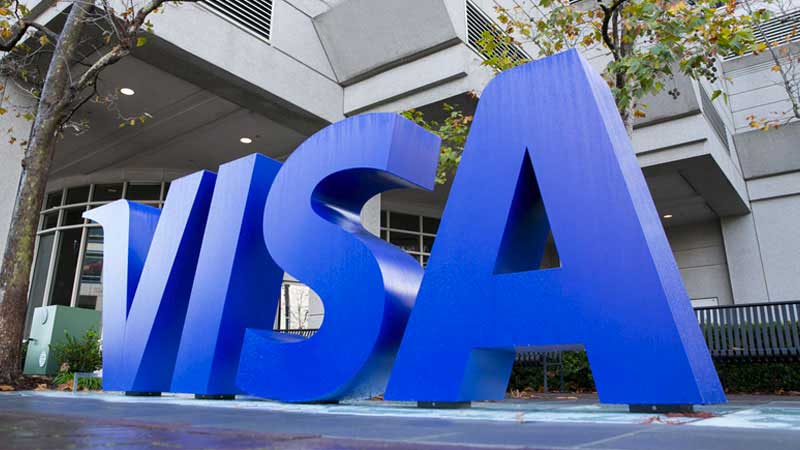Visa, a leading player in the payments industry, is taking a groundbreaking step that could significantly transform user experiences.
The company is currently in the testing phase of a revolutionary solution that enables users to pay on-chain gas fees using their Visa cards.
In a recent presentation by Mustafa Bedawala, a product manager at Visa, a critical challenge associated with cryptocurrency wallets was highlighted.
This challenge revolves around the constant need for users to manage their Ether balances to cover fluctuating gas fees.
In the traditional Ethereum process, users typically acquire ETH from exchanges or on-ramp services and then transfer these funds to their wallets to cover variable gas fees.
This dynamic adjustment of gas prices often results in users either overspending or having insufficient ETH, leading to complexities and obstacles.
Visa’s ingenious solution capitalizes on Ethereum’s ERC-4337 standard and leverages the “Paymaster” smart contract to facilitate off-chain gas fee settlement.
The procedure involves users initiating an Ethereum transaction through their wallets, which is then directed to the paymaster.
Through a web service, the gas fee is calculated, and Visa is charged via Cybersource.
Following this, a digital signature is generated, swiftly verified, and appended by the wallet before the transaction is sent to the Ethereum network.
The Paymaster confirms the signature and covers the gas fee.
READ MORE: Futurama’s Hilarious Take on Crypto Mining: A Wild West Adventure in ‘Crypto Country’
This novel series of actions empowers users to directly settle gas fees with their Visa cards off-chain, effectively eliminating the need for them to hold ETH solely for the purpose of fee payments.
Reports indicate that Visa has successfully piloted this concept on the Ethereum Goerli testnet, utilizing accessible open-source tools like Stackup’s userop.js library.
During the trial, transactions were able to cover fees through the Paymaster, rendering the necessity for ETH obsolete.
Significantly, this innovation has the potential to streamline experiences for blockchain users by enabling them to directly use their Visa cards to pay gas fees off-chain.
Furthermore, it opens doors to broader implications.
The report underlines the prospect of merchants and decentralized applications adopting the Paymaster framework to enhance customer interactions.
This entails facilitating gas fee payments through Visa cards.
Additionally, this advancement may prompt wallet and Paymaster providers to introduce options for gas fee payments via Visa cards.
In sum, Visa’s ongoing testing of its pioneering solution holds promise for simplifying the cryptocurrency landscape, providing users with more convenience and flexibility while ushering in new possibilities for merchants and service providers.
Other Stories:
Cryptocurrency Asset Flows Continue Negative Trend with $107 Million Outflows
Top VC Firms Face Class-Action Lawsuit for Alleged Role in FTX Crypto Exchange Fraud
PayPal’s PYUSD Stablecoin Launch Triggers Flood of Imposter Tokens and Honeypot Scams




